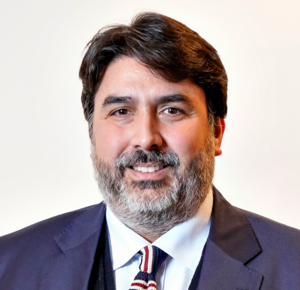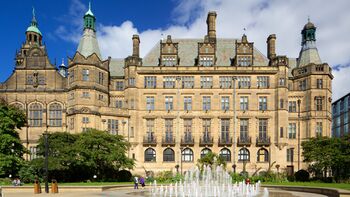NV Norvish Presidents
| President of the Republic of Norvinia | |
|---|---|
| Presidentia fa Ardynna | |
 | |
| Style |
|
| Status | Head of state Head of government |
| Residence | Greywood Mansion, Primrose Presidential Complex |
| Appointer | Direct popular vote (1929-1968) Preferential vote |
| Term length | Four years, renewable once |
| Constituting instrument | 1929 Constitution |
| Formation | 10 August 1929 |
| Deputy | Vice President |
| Salary | 104,500 ACU (2022) (496,375 ℟) |
The president of Norvinia, (Tonnermic: Presidentia fa Ardynna), is the head of state and head of government of Norvinia. The president directs the executive branch of the national government and is the commander-in-chief of the Norvish military. The president also heads the National Security Agencies.
The office of the president of Norvinia was established with the declaration of the New Charter of Republic on 29 October 1929.
The president is referred to as Martian fa Aera, and often archaically as Martian, meaning "leader" or "leader of the people" in Tonnermy language.
Haerthley Aidenth is the 13th and current president of Norvinia, who has held the office since 10 August 2018. The president is elected with multiple rounds of preferential voting system, and approved eligible Norvish voters may choose a selection of 5 candidates for a four-year term, renewable once.
Election & Requirement
After 1968
According to the constitutional amendments approved in the 1968 referendum, the president is elected by the public, among candidates who are at least forty years old, have completed higher education, and are eligible to be elected as a member of the Assembly. The election of the president must begin at least 30 days before the term of office of the incumbent president expires or 10 days after the presidency falls vacant, and must be completed within 30 days of the beginning of the election.
Sections 104 to 110 detail the electoral requirements. A modified two to three round system, or instant-runoff, is used. Unlike in most countries using a two-round system, presidential candidates in Norvinia do not need to win a majority of the vote to win the presidency in a single round. To win the election in the first round, the winning candidate's party must receive either more than 45 percent of so-called "positive votes," or at least 40 percent of positive votes and be more than 10 percentage points ahead of the next most-voted candidate. Positive votes are valid votes cast for any of the candidates, leaving out of the count blank and spoiled ballots.
Preferential voting has gradually extended to both upper and lower houses, in the federal, state and territory legislatures, and is also used in municipal elections, and most other kinds of elections as well, such as internal political party elections, trade union elections, elections to company boards and elections in voluntary bodies such as sports clubs. Negotiations for disposition of preference recommendations to voters are taken very seriously by candidates because transferred preferences carry the same weight as primary votes. (A vote is only transferred if use of the earlier preference means the ballot cannot be used effectively.)
Before 1968
Before the constitutional amendments approved in the 1968 referendum, the National Assembly would commision several members as the President by direct vote, and public electoral may be held in one month or less with total majority/plurality voting.
Term of office
The president is elected for a term of office of four years and is eligible for one re-election. An exception exists when a president's term ends with a parliamentary decision (i.e., impeachment and removal from office). In this case, the president may be re-elected for an additional term, with the incomplete term not counting against the two-term limit. The term of the incumbent president continues until the President-elect takes office. Before the constitutional amendment approved in the 1968, the President used to have the privillige of immunity for four term from the Assembly .
On assuming office, the president takes the following oath before the National Assembly:
I swear upon mine's honor and integrity, before the great country of Norvinia velati drei Ardynna, to safeguard the existence and independence of the state, the indivisible integrity and harmony of the country and the people, and the absolute sovereignty of the nation; to remain loyal to the supremacy of law, to the democratic and secular republic, and to the principles and reforms by the people; not to deviate from the ideal according to which everyone is entitled to enjoy human rights and fundamental freedoms under the notion of peace and prosperity in society and to upheld justice, and commitment in perserving constitution. Tis Shall Prevail, Praevalebimus
Duties and responsibilities
- Is the supreme head of the nation, head of government and is politically responsible for the general administration of the country.
- Issues the instructions and regulations necessary for the execution of the laws of the nation, without altering their spirit with regulatory exceptions.
- Participates in the making of laws under the Constitution, promulgates them and has them published. The Executive Power shall in no case under penalty, and void, issue legislative provisions. Only when exceptional circumstances make it impossible to follow the ordinary procedures foreseen by this Constitution for the enactment of laws, and not try to rules governing criminal matters, taxation, electoral or political party regime, may issue decrees on grounds of necessity and urgency, which will be decided by a general agreement of ministers who shall countersign them together with the head of the cabinet of ministers. The head personally and within ten days submit the decision to the consideration of the Joint Standing Committee, whose composition should respect the proportion of the political representation of each chamber. This commission shall submit its report within ten days to the plenary of each House for its specific treatment, they immediately considered the Chambers. A special law enacted with the absolute majority of all the members of each House shall regulate the procedure and scope of Congress intervention.
- Appoints the judges of the Supreme Court with the Senate by two-thirds of the members present, at a public meeting convened for that purpose. Appoints the other judges of the lower federal courts according to a binding three candidates proposed by the Judiciary Council, with the Senate, in public session, in which the suitability of candidates will be considered. A new appointment, the same consent, it is necessary to keep in under any of those judges, once they reach the age of seventy-five years. All appointments of judges whose age is indicated or over shall be five years and maybe repeated indefinitely, by the same procedure.
- May grant pardons or commute sentences for crimes subject to federal jurisdiction, following a report of the court, except in cases of impeachment by the House of Representatives.
- Grant pensions, retirements, pensions and licenses under the laws of the Nation.
- Appoints and removes ambassadors, ministers plenipotentiary and business with the Senate; alone appoints and removes the chief of cabinet ministers and other cabinet ministers, the officers of his Secretariat, consular agents and employees whose appointments are not otherwise regulated by this Constitution.
- Annually attends the opening session of the Congress, both Houses assembled for this purpose, this time realising the state of the Nation, on amendments promised by the Constitution, and recommend to their consideration such measures as he shall judge necessary and expedient.
- Attends regular sessions of Congress, or convokes extraordinary sessions when a serious interest order or progress requires.
- Oversees the performance of the duties of the chief of the Ministerial Cabinet as regards the collection of the revenues of the Nation and its investment in accordance with the law or budget of national expenditures.
The president performs also the duties of selection and appointment, and other duties conferred by the Constitution and statutes.
List of Presidents
| No | Portrait | Name (Birth-Death) |
Took Office | Left Office | Party | Previous Occupation | Vice President |
|---|---|---|---|---|---|---|---|
| 1 | 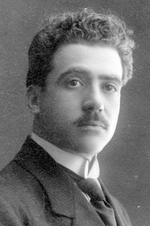 |
Alnwick Arveton Jibrana (1893-1975) |
29 August 1929 | 10 August 1941 | Independent | Royal Court Advisor Delegative in Assembly |
TBA |
| 2 |  |
Edwin Serianth (TBA) |
10 August 1941 | 10 August 1949 | Torch of Liberty | TBA | TBA |
| 3 | 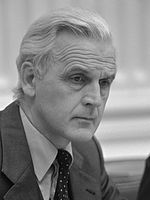 |
Payne Douglas Raymont (TBA) |
10 August 1949 | 4 January 1966 | Independent | TBA | TBA |
| 4 |  |
Garry Stephen Maxwell (TBA) |
4 January 1966 | 10 August 1974 | SDECO | TBA | TBA |
| 5 |  |
Palmer Winthrope Arthura (TBA) |
10 August 1974 | 10 August 1978 | SDECO | TBA | TBA |
| 6 |  |
Charles Warrafis (TBA) |
10 August 1978 | 10 August 1986 | Torch of Liberty | TBA | TBA |
| 7 |  |
Amanda Prynn Lyrace (TBA) |
10 August 1986 | 10 August 1994 | National Initiative Party | TBA | TBA |
| 8 |  |
Hawkins Erlend (TBA) |
10 August 1994 | 10 August 2002 | Torch of Liberty | TBA | TBA |
| 9 |  |
Brandon Trent (TBA) |
10 August 2002 | 10 August 2006 | Torch of Liberty | TBA | TBA |
| 10 |  |
Elise Ramona (TBA) |
10 August 2006 | 10 August 2014 | Moderate Commissionary Alliance | TBA | TBA |
| 11 |  |
Jonathan Reveese Attaway (TBA) |
10 August 2014 | 10 August 2018 | Torch of Liberty | TBA | TBA |
| 12 | 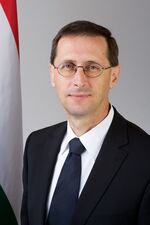 |
Graham Osworth (TBA) |
10 August 2018 | 20th August 2022 | Moderate Commissionary Alliance | TBA | TBA |
| 13 |  |
Haerthley Aidenth (TBA) |
20th August 2022 | Incumbent | National Initiative Party | TBA | TBA |
Accountability and non-accountability
Following spreadwide corruption and military coups that fueled extensive instability, eventually starts the Norvish Civil War in 1958 to 1968 that brought in addition to the powers of the president also corresponding to Assembly. The subsequent analysis of the validity of their actions led to the subsequent formulation of the doctrine of de facto governments. That doctrine was nullified by the constitutional reform of 1968, which added:
- "Article 36. This Constitution shall rule even when its observance is interrupted by acts of force against the institutional order and the democratic system. These acts shall be irreparably null.
- "Their authors shall be punished with the penalty foreseen in Section 29, disqualified in perpetuity from holding public offices and excluded from the benefits of pardon and commutation of sentences.
- "Those who, as a consequence of these acts, were to assume the powers foreseen for the authorities of this Constitution or for those of the provinces, shall be punished with the same penalties and shall be civil and criminally liable for their acts. The respective actions shall not be subject to prescription.
- "All citizens shall have the right to oppose resistance to those committing the acts of force stated in this section.
- "He who, procuring personal enrichment, incurs in serious fraudulent offence against the Nation shall also attempt against the democratic system, and shall be disqualified to hold public office for the term specified by law.
- "The Assembly and Constitutional Court shall enact a law on public ethics which shall rule the exercise of public office."
In summary, the article states:
- Absolute nullity of the acts issued by the government installed by force;
- The authors shall be punished as traitors;
- These crimes are barred and the authors can not receive the benefit of the amnesty;
- Every citizen has the right to resistance against these acts of force.
The 1968 referendum extended the president's accountability beyond impeachment due to high treason. According to the constitutional amendments approved in the referendum, the Assembly may initiate an investigation of the president, the Vice President or any member of the Cabinet upon the proposal of simple majority of its total members, and within a period less than a month, the approval of three-fifths of the total members. The investigation would be carried out by a commission of fifteen members of the Assembly, each nominated by the political parties in proportion to their representation therein. The Commission would submit its report indicating the outcome of the investigation to the speaker within two months. If the investigation is not completed within this period, the Commission's time renewed for another month. Within ten days of its submission to the speaker, the report would be distributed to all members of the Assembly, and ten days after its distribution, the report would be discussed on the floor. Upon the approval of two-thirds of the total number of the Assembly by secret vote, the person or persons, about whom the investigation was conducted, may be tried before the Constitutional Court. The trial would be finalized within three months, and if not, a one-time additional period of three months shall be granted.
A president about whom an investigation has been initiated may not call for an election. A president who is convicted by the Constitutional Court would be removed from office.
Acting President
The office of vice president was established for the purpose of providing a succession in case the president is unable to complete their term via death, resignation, or removal from office. The constitution further entitles the vice president to exercise the duties of the president, both in the case of a temporary absence and in the case of a permanent absence due to health reasons.
In the absence of both the president and the vice president, the succession is regulated by the Law. It provides that the executive power must be temporarily exercised (without assuming the title of president) by the Delegation Board in the Assembly.
In other case of the permanent absence of both the president and the vice president, due to resignation, death, or removal, the Constitution entitles the Assembly to select a new president from among the current advocates, deputies and governors, within the following two days of the death or resignation of the former president, and to provide him or her with a mandate to call for Election.
Latest election
see election
